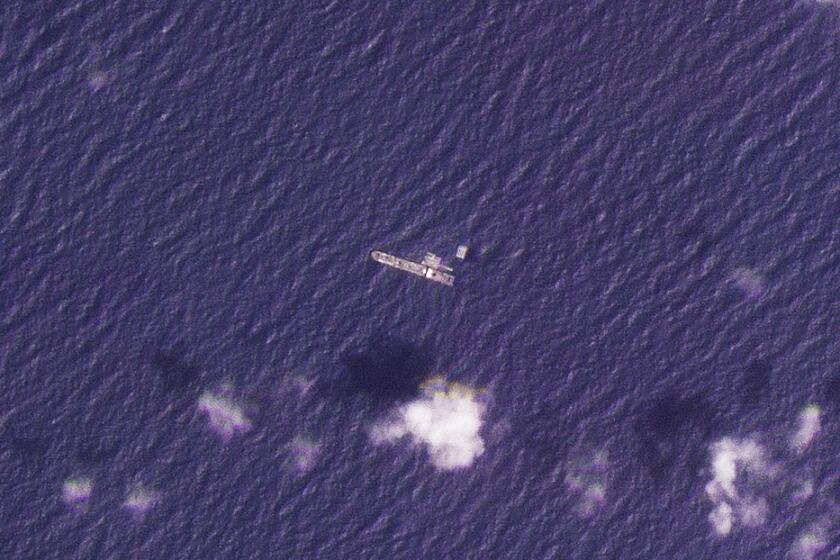White House to Target Vietnam and Neighbors for U.S. Exports : Asia: List identifies countries deemed to have the biggest potential to buy American goods.
The Clinton Administration, pushing to make economics the centerpiece of its foreign policy, said Monday that it is expanding its target list of major export markets to include Vietnam and five other rapidly growing Asian economies.
The Administration’s list of “Big Emerging Markets” will be expanded to include members of the Assn. of Southeast Asian Nations, Commerce Secretary Ronald H. Brown announced.
Two years ago, the White House, which has pushed trade as a key component of its foreign policy, announced the creation of the Big Emerging Markets list of developing countries that were deemed to have the biggest potential for boosting U.S. export sales.
Indonesia was on the original list, but the Administration said Monday that it is adding the other ASEAN countries--Thailand, Malaysia, the Philippines, Brunei and Singapore--and Vietnam, which will join ASEAN next week.
Brown said these seven nations represent a nearly half-trillion-dollar regional economy that is expected to double over the next decade. He said that at the end of that time, the Administration hopes U.S. exports to ASEAN countries will equal or exceed those to China or Japan.
Adding Vietnam to the list of countries seen as offering the biggest opportunities to U.S. exporters came two weeks after President Clinton announced he was granting full diplomatic recognition to Vietnam, a step that had been pushed by U.S. companies eager to compete for business there.
Brown’s announcement was made at the start of a two-day conference on the Big Emerging Markets hosted by the Commerce Department and attended by 500 American business executives and government officials from the countries on the list.
“These are the markets of tomorrow,” Brown said, noting that the Administration views increased exports as a key to U.S. prosperity. Since 1987, exports have accounted for a third of total economic growth in the United States, even though exports amount to only 12% of the total economy, he said.
“Export-related jobs have increased at six times the rate of domestic employment growth,” Brown said, answering critics who have attacked the Administration’s free-trade philosophy as flawed because it exposes American workers to increased competition from low-wage developing nations.
In addition to the ASEAN members, the other high-priority emerging markets on the Administration list are Argentina, Brazil, China, Taiwan, Hong Kong, India, Mexico, Poland, South Africa, South Korea and Turkey.
In a separate address to the conference, Jeffrey Sachs, director of the Harvard Institute for International Development, cautioned that the Administration must be careful in pursuing export opportunities in the developing world.
“Actions of unilateral retaliation are enormously corrosive,” Sachs said, an obvious reference to the Administration’s threat of punitive trade sanctions against Japan in the fight over autos and auto parts.
But U.S. Trade Representative Mickey Kantor, who also addressed the conference, said it is wrong to accuse the Administration of undermining the new World Trade Organization, the agency set up to police trade disputes between countries.
Kantor noted that the United States had gone to the WTO in separate trade disputes involving South Korean trade barriers to American meat exports and barriers erected by the European Union involving American grain. The United States was also prepared to file a case on Japanese barriers to U.S. autos had an eleventh-hour agreement not been reached.
More to Read
Start your day right
Sign up for Essential California for news, features and recommendations from the L.A. Times and beyond in your inbox six days a week.
You may occasionally receive promotional content from the Los Angeles Times.






